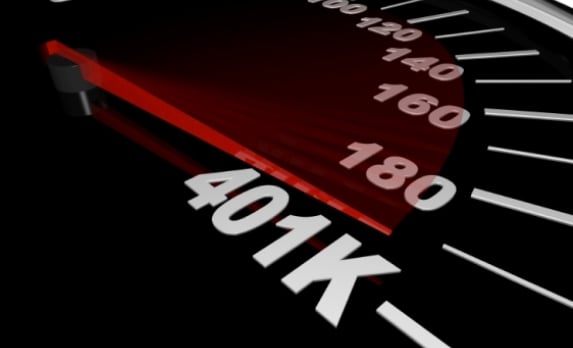Retirement experts say the Roth version has it all over the old-school DC plan; employees still not converting, though
When it comes to saving for his own retirement, certified public accountant Barry Picker takes advantage of a tax strategy ignored by most Americans. Each year he stashes some of his retirement savings in a Roth 401(k), rather than putting all his savings into a traditional 401(k).
While that means he misses out on the immediate tax break that comes from contributing to a traditional 401(k), Picker has something else in mind -- a less taxing retirement. By paying taxes now, he won't have to worry about paying taxes when he withdraws money from his Roth 401(k) later. Money withdrawn from a traditional 401(k), of course, will be taxed as ordinary income.
The big question investors have to grapple with, of course, is why they would rather pay taxes now instead of later -- especially when there is no way to know where tax rates will be in the future. “It's a compromise,” says Picker, who is also a certified financial planner. “I am giving up some control over managing my tax bracket today for being able to manage it in retirement. That's going to be valuable to me later.”
Social Security and Medicare
While Picker is thinking about keeping his taxes down in retirement, a Roth 401(k) also provides more flexibility when it comes to managing income and some less obvious payoffs as well. A traditional 401(k) requires you to begin taking distributions in the year your turn age 70½ (or if later, the year you retire) -- and then you pay taxes on that income. With the Roth 401(k), there is no required minimum distribution (if you roll the Roth 401(k) into a Roth IRA). That means you can choose to leave your funds invested and reduce your gross income.
Maria Bruno, a senior investment analyst at Vanguard's Investment Counseling & Research group, says regardless of what happens to tax rates, if you have to take a distribution from a traditional 401(k) that could bump you into a higher marginal tax bracket as well as reduce the net value of your Social Security benefit and increase your Medicare costs.
Consider this. For a married couple filing a joint tax return in 2012, up to half their Social Security benefit will be taxed if the sum of their adjusted gross income plus half of their Social Security payout and any nontaxable interest income is between $32,000 and $44,000. If their adjusted gross income rises above $44,000, up to 85 percent of the Social Security benefit becomes taxable. The distribution requirements of a traditional 401(k) could push their income over the edge. If it's in a Roth 401(k) it doesn't need to.
While the Social Security benefit isn't that practical for many people, given the low-income thresholds, leaving your money in a Roth 401(k) can have a more significant impact on your Medicare premiums during retirement.
This year, the standard monthly premium for Medicare Part B, which covers outpatient doctor and medical services and equipment, is $99.90. If a couple's joint modified adjusted gross income is above $170,000, the per-person monthly premium can rise by $40, to $220. The highest premiums go to couples with a joint income above $428,000 ($214,000 for individuals). For those with joint incomes above $170,000 who are enrolled in Medicare Part D, which covers expenses for prescription medications, there is an additional per-person monthly premium ranging from $11.60 to $66.40.
Investors Still Not Convinced
Despite the benefits, few people are switching from traditional 401(k) plans to Roth 401(k) plans. One reason is that Roth 401(k) plans are still a relatively new option (since 2006) in employer retirement plans, and only about 40 percent of 401(k) plans offer a Roth option. Among those that do offer a Roth 401(k), fewer than 10 percent of employees are choosing them, according to a study by Vanguard. Many people also believe the Roth 401(k) is for younger workers who have yet to hit their peak earnings (and marginal tax brackets). For them, the logic goes, losing out on the upfront tax break isn't such a big deal.
Something to keep in mind if you do opt for a Roth 401(k) is to not rush to convert an existing traditional 401(k) to a Roth. If you do, you'll pay taxes now on the conversion. A better strategy may be to shift new 401(k) contributions to the Roth and start building savings that will be tax-free when you retire.
Also, you should know that money saved in a Roth 401(k) can be withdrawn tax-free once the account is at least five years old and you have made it to the IRS's awkward 59½ age threshold for penalty-free retirement withdrawals. If you leave your job at age 55 or later, you can take distributions from the Roth 401 (k) with no penalty, assuming the account is at least five years old.
Ed Slott, an expert in taxes, IRAs and preparing for retirement, points out that once you invest in a Roth 401(k), there's no do-over provision -- those funds can't be converted to a traditional 401(k). That limitation doesn't dim Slott's enthusiasm for the Roth. “You lose your upfront tax break today, but you can't beat a zero tax rate in the future,” he says.
--Bloomberg News--







